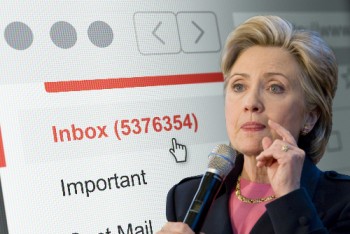 A new report on Monday afternoon indicates the FBI is preparing to provide members of Congress with not only Hillary Clinton’s interview notes, but also copies of the classified emails at the center of the probe. The same report also indicates Congress will be provided with a summary of all of the evidence reviewed during the course of the probe and the summaries of interviews conducted with Clinton’s top aides.
A new report on Monday afternoon indicates the FBI is preparing to provide members of Congress with not only Hillary Clinton’s interview notes, but also copies of the classified emails at the center of the probe. The same report also indicates Congress will be provided with a summary of all of the evidence reviewed during the course of the probe and the summaries of interviews conducted with Clinton’s top aides.
The Wall Street Journal broke the news late Monday afternoon, citing confidential sources familiar with the decision. According to the report, the FBI planned to release the information to lawmakers on its own, but the State Department intervened, requesting to review the material before it was turned over to Congress.
The article quotes an anonymous state department official as saying:
We did dispute the idea that they can just deliver all of this stuff to Congress without any coordination with the interagency. We’re not saying ‘Don’t do it.’ We know they have to do it. We recognize that. All we’ve asked for is a chance to see as much as they’re willing to let us see so that we can prepare ourselves.
State Department officials have also reportedly expressed a desire to view the material due to potential privacy concerns of any individual mentioned in the material who is still employed at State.
A senior State Department official explained to the newspaper, “We want to get a sense of what is in the interviews, particularly with current State Department employees, so that we can be mindful of our equities with our people and to prepare those people for what is going to be released.”
The discussions between the two agencies are reportedly still ongoing and are likely the reason the release of the material to Congress has been delayed, according to the report.
Republican lawmakers first requested materials related to the Clinton email investigation back in July when FBI Dir. James Comey announced he would not recommend criminal charges in the matter.
While Congress is ultimately expected to get a look at the documents, the general public is unlikely to receive any additional information about the materials, at least for the immediate future. The report states the materials are still considered to contain classified information and will be presented to members of Congress behind closed doors.